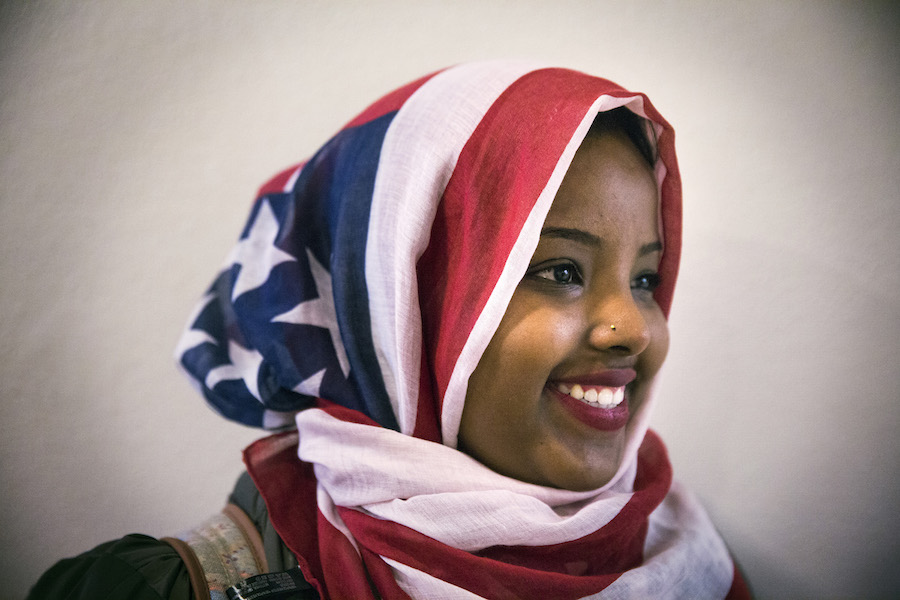The religion of Islam is misunderstood by many non-Muslim Americans.
As a result of there being a variety of Muslim sects with different beliefs and teachings, such as Sunni and Shia, the religion quickly becomes difficult to define for those with little understanding of Islam’s holy text — The Quran.
Media outlets continuously provide coverage of Islamic extremist groups — most notably, the terrorist organization ISIS – attacking western cities and recruiting hundreds into accepting their twisted version of “jihad.”
In a lecture at Oxford University, Prime Minister of Malaysia Dr. Mahathir Mohamad refuted the concept of Islam as a violent religion by saying, “No one, Muslim or non-Muslim, can deny that there have been a lot of terrorist acts perpetrated by Muslims. But then, a lot of terrorism has also been perpetrated by non-Muslims. The difference is that if a Muslim does it, the deed is immediately attributed to his faith. When a non-Muslim commits the most heinous of terroristic crimes, his deed is not linked to his religion.”
As a result of media outlets using terms like “radical Islam,” in certain coverage without entirely addressing what the non-radical version truly is, Islamophobia has spread quickly in western countries.
This Islamophobic phenomenon in nations with Christian majorities has created a hostile environment for those following the non-radical version, or what many non-fundamentalist Muslims call the true version of Islam.
According to a report by Georgetown University’s Center for Muslim-Christian Understanding, there have been more than 180 Muslim-focused hate crimes nationwide between March 2015 and March 2016.
Cal State Long Beach’s Muslim community has also faced unfair treatment from non-Muslims.
Being Muslim
“I’m a Muslim female in the United States, just practicing my religion— worshipping one God, respecting the holy books and acknowledging the prophets,” said Leen Alhmadi, first year nutrition and dietetics major.
The religious aspect of Islam is one very similar to religions like Christianity and Judaism. Extremism can, without a doubt, grow from religions like these; however, once they do they become their own dangerous sect.
“People claim to be following a religion yet blatantly do things that aren’t allowed in it— and they get branded as Muslims,” says Alhamdi on those who practice religious extremism. “That just gives Muslims a bad name, especially here in the US.”
Alhmadi shared that she has faced discrimination exactly because she is a hijab-wearing Muslim, but although she has been spat on and has had people throw things at her, she’s grateful she lives in LA— and not the rural south where her aunt resides.
“My aunt lives in Alabama and it’s really bad over there.” she said. “She had someone break in her house, vandalize her car, throw rocks at her, someone robbed her. It’s disgusting.”
Islamophobia stems from the fear that Muslims are embracing an oppressive and violent religion. Media outlets aren’t helping end the fear, either.
News agencies, such as CNN and NBC, have asserted in their coverage that as long as “radical Islam” is said, rather than “Islam” alone, they are suitably specifying that a certain sect is the problem rather the entire religion.
However, the core of the expression “radical Islam” is “Islam.”
Viewers tend to generalize and make their own connections. When many non-Muslims hear a word as ambiguous as ‘radical’ before the word Islam, they’ll harbor association and direct their focus to the latter— which they’ve come to understand is a major world religion.
Terms like these spark a widespread misunderstanding of the religion, coupled with fear of it, nationwide.
“The media needs to be careful who they label Muslim,” finished Alhamdi.
‘Jesus Loves You’
Even when practicing Islam in non-radical manners, Muslims are still targeted for their faith.
“We were all praying in a big group and while we were in the middle of prayer— someone came and said, ‘Don’t be a Muslim, don’t follow Islam— it’s the wrong religion— Jesus loves you,’” shared Shaheer Syed, a fourth year management information systems major.
According to a 2015 Pew Research Religious Landscape Study, over 70 percent of Americans consider themselves to be Christians, while less than 1 percent are Muslims.
Someone with a fear of Islam coupled with the encouragement of proselytizing from the Christian doctrine they follow can easily create an unwelcoming environment for Muslims.
“If I ever saw a Christian praying or someone meditating— I would never go up to them and harass them because they’re practicing their religion,” says Syed. “I don’t know why people tend to do that Muslims.”
Ending Ignorance
Rather than using terminology like “radical” to describe members of terror organizations like ISIS, media outlets— who provide news for millions of viewers nationwide— should choose a word which actually describes these terrorists.
I suggest something like: Violent extremists — this description does not include the name of a major religion which, in actuality, does not promote international terrorism.
Non-muslims must maintain a cognitive balance that does not berate members of a worldwide religion because of a miniscule group of extremists.
“As a Muslim woman who wears the headscarf, it’s hard because you walk down everywhere and you have people staring at you— because of 9/11 and what’s going on with ISIS right now— people associate me with those people.” said Fatimah Alghweir, second year management information systems major.
Let’s face the fact: Certain enigmatic terms used by media outlets unintentionally help spread islamophobia throughout the nation.
Extremists have perverted the doctrine of Islam— and the non-”radical” Muslims are paying the price for crimes they did not commit.




